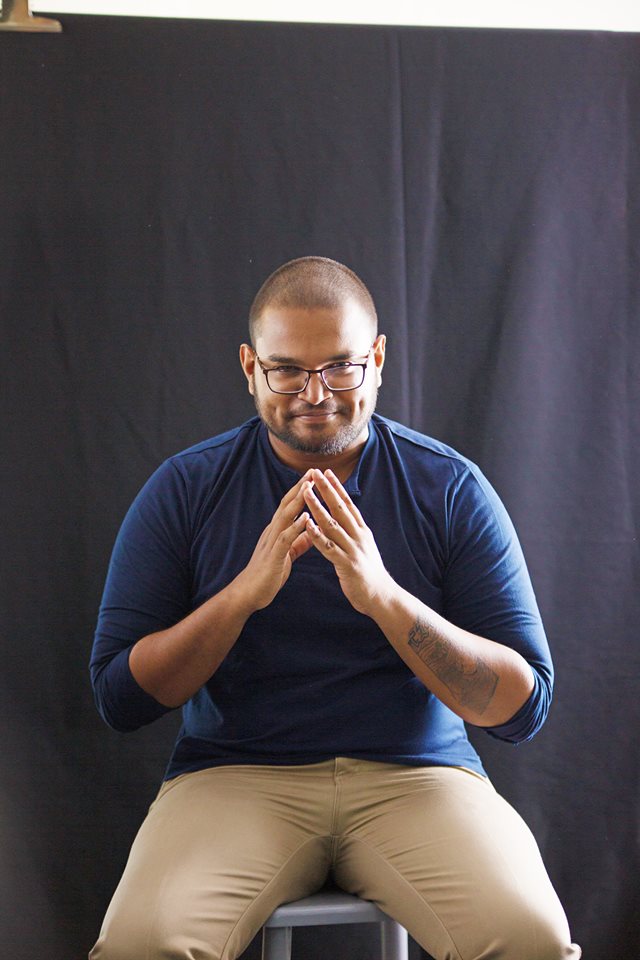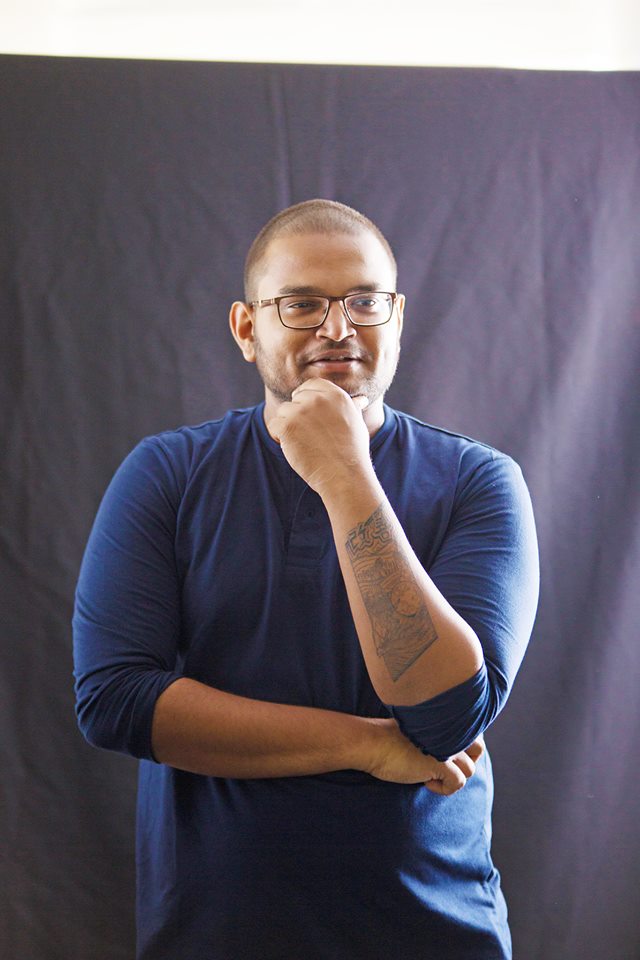
Nobody wants their drunken conversation written down somewhere. Being a photographer is different. People come to you. They smile. They flirt. They make sure you see only their best side. Nobody wants to upset the camera.
— Numbercaste
The only instance when Yudhanjaya emanated a radiant and effulgent smile was when we spoke about books, writing, and his fascination with new and fantastic worlds. The only time I mirrored that same look of glee was after downing 1/4 of a bottle of Halmilla Old Arrack, which he ordered.
He downed the other 1/4, and by that time, I was swimming in a sea of similes, metaphors, analogies, allegories and other figures of speech (the names of which have slowly gathered cobwebs and dust in the corners of my brain) — luckily I took notes otherwise this enthralling interview would have dissipated like autumn gossamer in the wind.
As most of Colombo’s work-weary denizens would know, Mintage offers an eerie ambiance, and the yellow lamps limned Yudanjaya’s grin as we spoke about his ‘other worlds’. Quite the storyteller he is, and my mind was fresh from a reading of the Messenger, which is his collaboration with R. R. Virdi. His sentences are short bursts of creativity quite like the laser cannons used by the robotic Hindu deities in Messenger.
The mind of a fiction writer is a scary place to be in, and the civilizations that are waiting to be scribbled down into a clean white A4 paper is a violent labor of love. What’s even more enthralling is how he has managed to combine his passion of writing fiction and his enthusiasm for his day job as a Researcher at LIRNEasia — a pro-poor, pro-market think tank.
Gimlet-eyed, the main protagonist of this article spoke of the importance of data and dataism. There was so much of Yuval Noah Harari in him, and the symphony of monologues moved onto centrist politics, and the utopia that’s awaiting us in possibly a century or so. If we won’t be alive to see it, you might as well dream about it, right? We both shared a rueful glance at that shared thought — What IF we were living in 2075 right now? What would the world be like really? — and drank some more.
We spoke a lot. One interesting subject was of the evolution of wealth. Harari at one point speaks of the transition of wealth: we are at a transition where wealth, which is regarded as the ownership of land, is transforming into a knowledge economy, where knowledge will be the new-age definition of riches. And we agreed that the democratization of information will lead to less poverty and better opportunities for people in future.

Here is a homegrown author who is at the apex of his appeal, or, dare I say — yet to reach his apex. Some of his creative and eloquent prose is bound to offer post-coital feels for those who treasure the adroit navigation of the English language. We spoke at length about Sylvia Plath, J. K. Rowling, Stephen King, and Indian and Sri Lankan cultural nuances. The massive assimilation of knowledge Yudhanjaya possessed and disseminated was an exercise in intellectual stimulation.
With motifs of cigarette smoke swirling lazily and making quasi-symbols not unlike that of some badly-scripted sci-fi movie seemed apt as the conversation segued into another different topic and one hundred more — Think gender fluidity. Contemplate transphobia. Care for an existential crisis? Anyone?
At times I disagree that fiction is actually fiction. Once you meet the author you realize that there is so much of him in the sentences and paragraphs that make up his novels. Channel your attention to the quote from Numbercaste at the beginning of this feature article.
Anyone who does know this bespectacled Alchemist (a nickname from his old gaming days) knows that he really is a chum. Luckily, there were no cameras that night to capture a celebrity in a flattering light, and although it was a drunken conversation — I did manage to chip at that eclectic and confusing mosaic uniquely named Yudhanjaya Wijeratne and felt that it was I who turned out richer and more enlightened.
Written by Rohitha Perera
